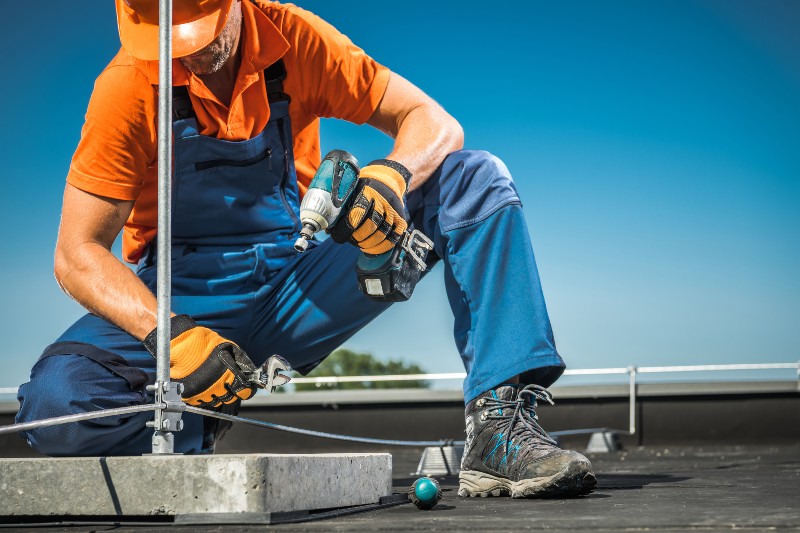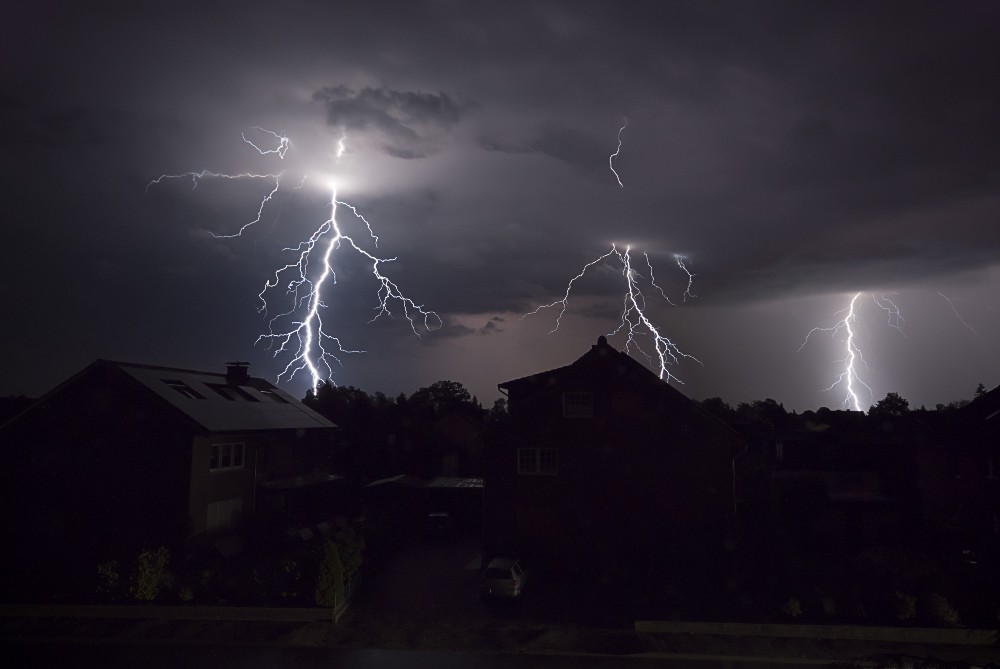Metal roofs may seem like lightning magnets, but this isn’t really the case. Read on to learn how your roofing materials affect your risk of a dangerous lightning strike.
Does it Really Make a Difference?
When they have a metal roof above their heads, homeowners often worry it will increase the risk of lightning strikes. After all, it’s common knowledge that metal is a highly conductive material. It’s used to make lightning rods which are designed to attract bolts of lightning; so shouldn’t it turn your roof into a lightning magnet?
The reality isn’t so simple. While it may seem counterintuitive, metal roofing will not attract lightning. What’s more, it can actually make lightning strikes less dangerous. To understand why, it helps to know a little about how lightning works in the first place.
How Lighting Behaves
Studied for centuries, lightning behaves in a relatively predictable way. A rapid discharge of atmospheric static electricity, it comes in three varieties. For the sake of brevity, our concerns center less on intra-cloud activity and more on cloud-to-ground (CG) discharges. This is the type of lightning best understood and the most likely to pose dangers to property and life.
Lightning discharges are governed by topography and geography, along with the actual movements of a storm. When it is ready to discharge, lightning will strike, whether a metal roof is sitting out in the open or 200 miles away. In other words, the composition of a roof will not affect the way lightning behaves.
But what about metal lightning rods? Don’t they attract lightning? Not really. Instead, they are designed to channel lightning to the ground if it happens to strike a specific part of a building. That’s why they’re usually placed at the highest point.

Like any electrical charge, lightning will always seek the path of least resistance as it discharges. With cloud-to-ground lightning, the lightning is discharging into the earth but has to travel through a vast expanse of air first. Buildings and trees are better electrical conductors compared to open air.
A nice tall building will always provide an easier path by decreasing the distance the bolt has to travel through the air. In almost every instance, the bolt will seek the conductor nearest to the cloud. This is why a tall tree is more likely to get struck and why you don’t want to find yourself standing in an open field during an electrical storm.
So it’s the height of a roof (and not the material) that will increase the risk of a lightning strike. The consequences of the strike, on the other hand, depend significantly on what the structure is made of, and whether it is equipped with an effective lightning protection system.
After the Strike
Electricity will always pass more easily through good conductors such as steel or copper. Contrarily, it will have a harder time passing through poor conductors such as concrete or wood. These poor conductors have a lot more electrical resistance, which essentially converts a portion of the lightning’s electrical energy into very high heat. This can result in fires and, in some instances, destructive explosions.
Metal building systems with metal structural frames and conductive metal roofs give a bolt of lightning a low-resistance path to the earth. This often allows them to survive lightning strikes with far less damage. This may seem hard to fathom, but it’s essentially the same reason you are safer from lightning in a car than you are standing next to it.
The Bottom Line
Lightning is a very dangerous and destructive force that poses very real risks to property and human life. The actual dangers during a lightning strike, however, depend mostly on whether a home is occupied and whether it is composed of highly combustible materials. Since electronic equipment is usually sensitive to electrical discharge, it can also be at risk.
With all that said, your roofing material plays almost no role in attracting lightning. It could, however, help determine the degree of damage that follows.
Need a new roof or help repairing weather-related damage? A to Z is ready to help. We’ve developed a widespread reputation as one of Colorado’s premier roofing contractors by providing reliable workmanship and attentive, honest customer service. Contact our attentive team to learn more.
For more on metal roofing, be sure to read our Guide to Commercial Metal Roofing.

